Welcome the Class of 2024


Abini-Agbomson Jane Coffin Childs Fellow
Max Planck Institute of Immunobiology and Epigenetics
Epigenetic modifications are changes that affect how our genes are turned on or off, without changing the underlying DNA sequence. These changes can be influenced by factors like our environment, diet, and lifestyle. The epigenetic modifications of DNA and chromatin-associated proteins play a crucial role in regulating cell-type specific gene expression. Methylation of DNA, for… Read more
Abini-Agbomson


Ahn Jane Coffin Childs - HHMI Fellow
University of Washington/Institute for Protein Design
Cell surface proteins can drive diametrically opposed phenotypic outcomes when bound by ligands, distinct molecules that attach to other specific molecules. Therefore, efforts to rewire membrane protein signaling, introducing a specific function could improve and change how we develop treatments. Dr. Green Ahn will engineer novel membrane protein effectors in Dr. David Baker’s lab at… Read more
Ahn
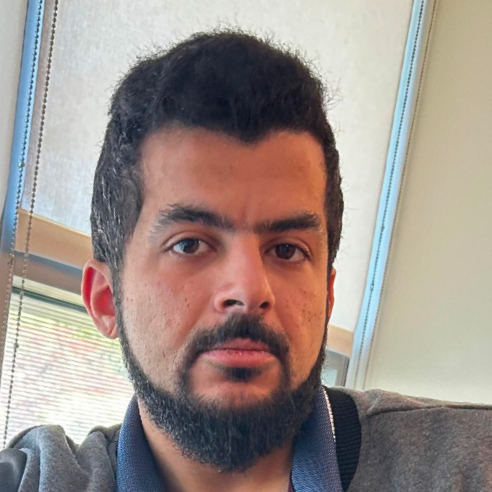

Alshareedah Jane Coffin Childs - HHMI Fellow
Boston Children's Hospital/Harvard Medical School
Homologous recombination (HR) is an important pathway for error-free DNA strand break repair. Proper repair of DNA breaks is crucial for preventing cancer, as indicated by the number of frequent genetic mutations in this pathway that lead to breast, ovarian, and other types of cancer. Therefore, a better mechanistic understanding of DNA break repair may… Read more
Alshareedah


Asokan Jane Coffin Childs Fellow
Princeton University
Social interactions and behaviors are mediated by a hormone-sensitive brain network. For example, female mice are sexually receptive only during a certain phase of their estrous cycle around ovulation. Yet, it is still unclear how hormones modulate this network’s circuit architecture and dynamics to dictate changes in behavior. Dr. Meenakshi Asokan will examine this missing… Read more
Asokan


Bezwada Jane Coffin Childs Fellow
The Scripps Research Institute
Allostery is a fundamental biochemical process in which one site on a protein influences the function of a different site on the same protein, even if they are far apart. Given this relationship, allosteric sites are versatile drug targets as they can activate, inhibit, or even provide a new function to the protein depending on… Read more
Bezwada


Braxton Jane Coffin Childs Fellow
California Institute of Technology
Traditionally, structural biology efforts have been limited to studying purified samples in isolation. While we have learned a great deal via these efforts, such approaches unfortunately strip away much of the biological context from the sample of interest. Dr. Julian Braxton will overcome these limitations by using cryo-electron tomography (cryo-ET) to examine proteostasis, or the… Read more
Braxton


Fu Jane Coffin Childs - HHMI Fellow
University of Washington
Mitochondria are cellular organelles that house their own DNA. There are hundreds to thousands of copies of the mitochondrial genome (mtDNA) in each cell. Often, mtDNA copies are not the same; rather, a fraction of them carries mutations. Moreover, the composition of mtDNA varies drastically across cells and cell types. Mitochondrial diseases manifest when the… Read more
Fu


Hill Jane Coffin Childs Fellow
Yale University
Glioblastoma is one of the deadliest forms of brain cancer. All glioblastomas contain fast-growing and aggressive tumor cells. The current standard of care, temozolomide (TMZ), extends patient’s lives by a median of 7 months; however, this chemotherapy only works for a subset of patients, and many of those patients rapidly acquire resistance to this treatment.… Read more
Hill


Hindmarsh Sten Jane Coffin Childs - HHMI Fellow
Stanford University
Neural circuits have been honed by evolution to enable animals to instinctively survive and reproduce in the world that surrounds them. Mammals, however, also have a distinct ability to weigh primal instinct against experience, allowing us to learn how to appropriately respond based on our unique knowledge of the dynamic world around us. However, how… Read more
Hindmarsh Sten
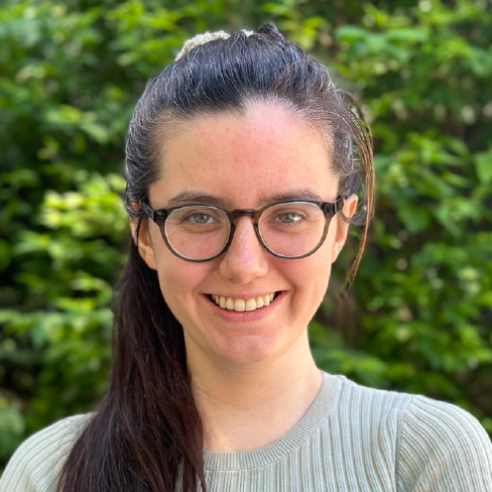

Holmes Jane Coffin Childs Fellow
Harvard University
Inferring the genetic basis of quantitative traits is foundational to understanding the biological mechanisms that underlie complex phenotypes such as behavior, homeostasis, and disease. Mapping genotype to phenotype has been transformational for understanding and treating diseases controlled by a single gene, or monogenic. However, understanding complex, highly polygenic phenotypes with currently available approaches can take… Read more
Holmes


Hossain Jane Coffin Childs Fellow
Memorial Sloan Kettering Cancer Center
Extrachromosomal DNAs (ecDNAs) are circular DNA elements that amplify oncogenes and mediate chemotherapy resistance. Despite their importance in cancer, currently no therapies directly target these aberrant molecular structures. Dr. Amer Hossain will investigate innate immune system recognition of ecDNAs to limit their oncogenic potential in Dr. John Maciejowski’s lab at Memorial Sloan Kettering Cancer Center.… Read more
Hossain


Hu Jane Coffin Childs - HHMI Fellow
Dana-Farber Cancer Institute & Harvard Medical School
Dr. Yanyan Hu’s research focuses on discovering new biomarkers to help diagnose, monitor, and treat cancer. In particular, Dr. Hu hypothesizes that studying the tumor cell surface proteome will reveal an abundance of potential therapeutic and diagnostic targets against cancer. In Dr. William Kaelin, Jr.’s lab at Dana-Farber Cancer Institute, Hu has devised a proximity… Read more
Hu


Liu Jane Coffin Childs - HHMI Fellow
Harvard Medical School
Sometimes less is more. Our ability to stop an action is an important aspect of executive control, and the lack of this ability is linked to neuropsychiatric disorders like Obsessive-Compulsive Disorder and Attention-Deficit/Hyperactivity Disorder. Yet, it remains unclear how we make and execute stop decisions. Dr. Shijia Liu will investigate the neural mechanisms and pathways… Read more
Liu
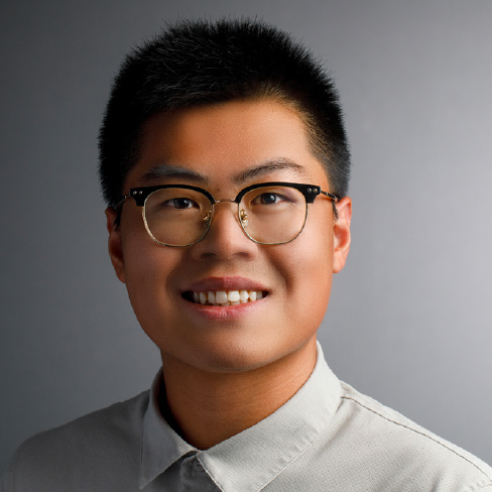

Mao Jane Coffin Childs Fellow
Massachusetts Institute of Technology
Proper functioning of our immune systems depends on the precise timing of an orchestra of molecular events. One such important event is the release of cytokines, which are signaling molecules, into the extracellular space to mediate intercellular communication. For cytokines to exert appropriate immunomodulatory roles, their bioavailability must be strictly yet dynamically regulated in space… Read more
Mao


Nadjsombati Jane Coffin Childs Fellow
University of Utah
Metastasis, which includes the dissemination of tumor cells from a primary site and subsequent colonization of faraway sites, is the primary cause of cancer deaths. This process requires a failure of our immune system to recognize and destroy metastasizing cancer cells. As such, targeting cancer during the metastasis step will help create therapies for patients… Read more
Nadjsombati


Naturale Jane Coffin Childs Fellow
The Rockefeller University
Organismal development is an elegant progression from a single cell to billions or trillions of different cells that form our tissues and organs. While much is known about development at the molecular level, important questions remain about how subcellular molecular inputs integrate with “supracellular” physical behaviors of large cell collectives to shape our tissues. Little… Read more
Naturale


Park Jane Coffin Childs - HHMI Fellow
University of California, Berkeley
CRISPR-Cas systems have revolutionized genetic engineering and led to novel genetic medicines. As powerful as these systems are, they have some disadvantages such as their large size and a lack of orientation bias which limits their therapeutic usage. CRISPR-associated transposons (CASTs) are mobile genetic elements that use CRISPR-Cas systems for RNA-guided transposition. CASTs may represent… Read more
Park


Pettit Jane Coffin Childs - HHMI Fellow
Harvard Medical School
In adaptive behavior, we take in information from the world around us and use that information to execute certain actions to interact with the surrounding environment. For example, successful navigation requires us to remember the spatial position of a goal and transform that information into actions that will move us towards that goal. Mechanistically, it… Read more
Pettit


Richard Jane Coffin Childs Fellow
Stanford University
Aging is associated with decreased cognitive ability and enhanced risk of developing neurodegenerative diseases such as Parkinson’s and Alzheimer’s. The declining function of neural stem cells (NSCs) is partially responsible for these trends in the aging brain. While much is known about the genetics of late-stage neurodegenerative diseases, relatively little is known about changes that… Read more
Richard


Rundlet Jane Coffin Childs Fellow
The University of Texas at Austin
The international outbreak of mpox (monkeypox) in 2022 incited global health concerns and underscored the need for an innovative vaccine. However, little is known about potential vaccine targets within the causative orthopoxvirus, mpox virus. Dr. Emily Rundlet will explore the structure and function of potential mpox vaccine targets in Dr. Jason McLellan’s lab at the… Read more
Rundlet


Scott Jane Coffin Childs Fellow
Harvard University
Social interactions between distinct species are important at ecological scales yet are mediated at the molecular level by the transfer of biomolecules such as small chemicals and proteins between organisms. Symbiosis is an example of a relationship among species where both species benefit from a social behavior or interaction. Dr. Trey Scott will examine the… Read more
Scott


Shui Jane Coffin Childs Fellow
Massachusetts Institute of Technology
Tissue regeneration, in a normal developmental context, and cancer are both forms of cellular proliferation. However, tissue regeneration is regulated and responsive to the surrounding environment, whereas cancer sheds these restraints. Understanding the commonalities and the differences between tissue regeneration and cancer may provide insight into novel avenues for cancer therapeutics. Dr. Bing Shui will… Read more
Shui


Stevens Jane Coffin Childs Fellow
The Scripps Research Institute
Tauopathies are diseases such as Alzheimer’s that are characterized by the aggregation of tau protein. Unfortunately, no disease-modifying therapies currently exist for tauopathies, and the impact of these diseases will increase as the global population trends towards an aging demographic. Dr. Alex Stevens will investigate a novel mode for treating tauopathies in Dr. Keren Lasker’s… Read more
Stevens
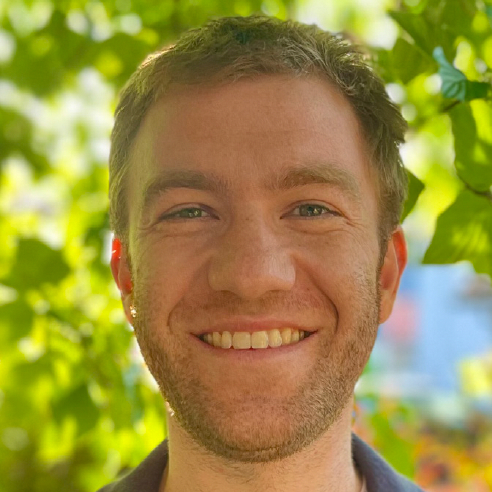

Tullis Jane Coffin Childs Fellow
Oregon Health and Science University
Poly ADP-ribose polymerase 1 (PARP1) is a protein involved in the DNA damage response and an important drug target against many cancers. There are a number of PARP1 inhibitors, but current drugs targeting PARP1 can have limited therapeutic potential due to cancer cells frequently acquiring resistance to these drugs. Dr. Jonathan Tullis aims to understand… Read more
Tullis


Zheludev Jane Coffin Childs Fellow
Gladstone Institute
The first century of molecular biology discoveries was enabled by the study of Nature’s original molecular biologists: viruses. Viruses and their simpler cousins, sub-viral RNAs are extremely well adapted to manipulate their host cell. By studying how these agents alter their host, scientists have been able to both understand the mechanisms of diseases as well… Read more
Zheludev
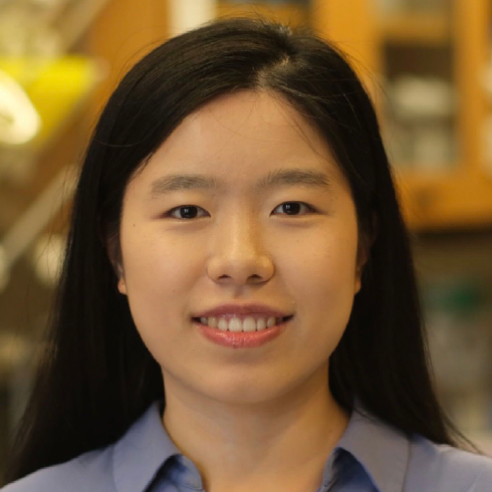

Zou Jane Coffin Childs - HHMI Fellow
The University of Chicago
Translation is a key step in gene regulation that dynamically responds to cell stress, signaling, and metabolic alterations. While there are techniques that allow for investigating transcription with single-cell resolution, similar tools for examining translation are lacking. Dr. Zhuoning Zou will develop a method for analyzing translation in single cells from complex samples in Dr.… Read more
Zou